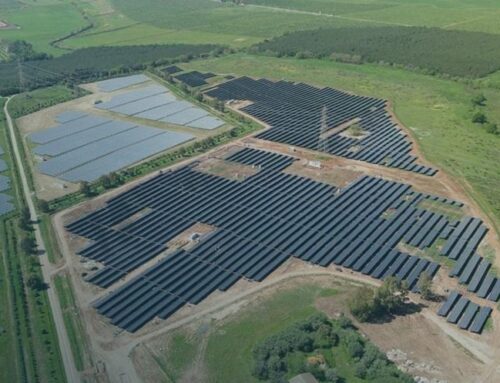Labor targets cost of living and climate with $2.3bn household battery pledge
April 5, 2025
Federal Labor has confirmed it will spend $2.3bn to slash the cost of household batteries by 30%, as part of a dual cost-of-living and climate action pitch to voters.
The party believes the change could save households about $4,000 on a typical battery, with expectations that more than 1m new batteries will be sold by the end of the decade.
According to analysis prepared by the Department of Climate Change, Energy, the Environment and Water, a household with solar and a battery system could save up to $2,300 a year, equivalent to 90% of a typical family’s electricity bill.
The prime minister, Anthony Albanese, has framed the announcement as a cost-of-living measure that “is good for power bills and good for the environment”.
In early March, Guardian Australia revealed the Albanese government was preparing a large residential energy efficiency package as part of Labor’s re-election platform.
The discount will be delivered by expanding the small-scale renewable energy scheme, which has been subsidising renewable energy equipment for more than a decade.
The scheme – which is due to end in 2030 – has previously been limited to solar panels, heat pumps, water heaters, wind turbines and hydro systems.
The discount will apply to the installation of ready-made battery systems that are installed alongside new or existing rooftop solar until 2030. The scale of the discount will reduce over time, in line with battery costs.
The discount will not be affected if households take up existing state or federal government energy subsidies.
Several state and territory governments already offer subsidies for home batteries, with the WA premier, Roger Cook, promising rebates of $5,000 and $7,500 for household batteries.
A Labor spokesperson said the department’s analysis was prepared before the government went into caretaker mode and the $2.3bn was reflected in last month’s federal budget.
More than 300,000 solar systems have been installed each year since 2020 under the scheme, saving households more than $1,500 annually, according to figures from the Clean Energy Regulator published in December.
Clean energy advocates and crossbench MPs had been urging the federal government to do more to subsidise the upfront cost of solar panels, electric appliances and household batteries to slash power bills while cutting greenhouse gas emissions.
Chris Bowen, the minister for energy and climate change, said “households and businesses having batteries means we can keep solar energy on tap and keep energy bills down consistently”.
The Coalition has signalled its own home battery plan is in the works, setting up competing policies to spark a household electrification revolution.
Last month, the shadow minister for climate change and energy, Ted O’Brien, said the Coalition wanted to encourage battery uptake.
“The Coalition understands the importance of practical solutions like household batteries to improve energy resilience and affordability, and we’ll have more to say about this closer to the election,” O’Brien said.
Household batteries can help people with solar panels avoid being charged for surplus power they generate if it would otherwise have to be fed back into the grid.
Search
RECENT PRESS RELEASES
Related Post


